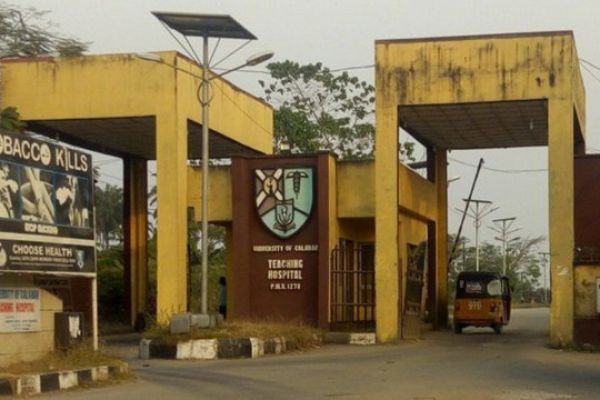Calabar, Nigeria – The Vice Chancellor of the University of Calabar, Professor Florence Obi, has called for calm amid growing outrage over the stalled induction of 31 dentistry graduates, assuring parents and students that the institution is taking urgent steps to resolve the impasse with the Medical and Dental Council of Nigeria (MDCN).
Addressing journalists on Monday at the University Council Chamber, a visibly concerned Professor Obi clarified misconceptions circulating on social media and provided a detailed account of the ongoing controversy, which has drawn national attention and stirred distress within the university community.
At the heart of the matter is what the VC described as a “historical over-subscription” of the university’s dentistry programme — a lingering breach of MDCN’s admission quota of 10 students per session, in place since 2016.
“This issue did not begin with my administration,” Professor Obi stated firmly. “However, we acknowledge the problem, and we are taking full responsibility to correct it.”
Despite the university’s clinical dentistry programme receiving full accreditation in 2020 (valid until 2027), the MDCN recently declined to induct 31 final-year students who had completed all academic requirements. The affected group is part of a graduating class of 60 — six times the approved quota.
“We are grateful to the MDCN for their past understanding. They inducted our last three sets, even though we exceeded the quota. But this time, the numbers were just too far above the mark,” she explained.
MDCN Recommends Student Transfers, Induction Freeze
In a bid to break the deadlock, UNICAL officials have met with MDCN leadership in Abuja, where a dual solution was proposed: temporarily transferring current 4th to 6th-year students to other accredited institutions, and suspending further inductions until the university expands its infrastructure and academic staff capacity.
Professor Obi was quick to stress that this was not an issue of losing accreditation, but rather a matter of regulatory compliance.
“Let me be clear — the University of Calabar runs an accredited dentistry programme. We are not operating illegally,” she said. “The problem lies in staffing and infrastructure, which have hampered our ability to invite MDCN for a reassessment that could have increased our quota.”
Staffing Crisis and Federal Bottlenecks
The VC pointed to a critical staffing shortfall, worsened by federal constraints tied to the Integrated Payroll and Personnel Information System (IPPIS), which restricts universities from independently recruiting needed personnel.
“We’ve made several appeals to the National Universities Commission (NUC), the Federal Ministry of Education, and the Office of the Head of Service. Thankfully, we’ve now received permission to hire 218 new academic staff — we are only waiting on final clearance from the Budget Office,” she announced.
Presidential Intervention: ₦4.75 Billion Lifeline
Offering a glimmer of hope, Professor Obi revealed that UNICAL recently secured a special presidential intervention of ₦4.75 billion, earmarked for upgrading facilities in key medical-related disciplines, including dentistry.
“We’ve submitted our needs to the implementation committee. Among our top priorities is acquiring 16 more dental chairs, raising our total to 40 — a vital benchmark for increasing our MDCN quota,” she said.
VC Appeals for Patience, Empathy
As anxiety among affected students and their families mounts, Professor Obi made a heartfelt appeal for understanding and patience.
“We know how heartbreaking this is. Some students are depressed, and we share their pain. But I want to assure everyone — we are not sitting idly. We are working tirelessly, diplomatically, and transparently to resolve this,” she said.
She further pledged that student transfers, if implemented, would be conducted fairly, with full cooperation from other institutions and MDCN oversight.
“This is a temporary setback, not a death sentence. We are committed to bringing the MDCN back for reassessment once we complete our upgrades. Our students deserve nothing less,” the Vice Chancellor affirmed.
As the university navigates this storm, all eyes remain on the unfolding developments — and on the hope that justice and solutions will soon prevail for the stranded graduates.









